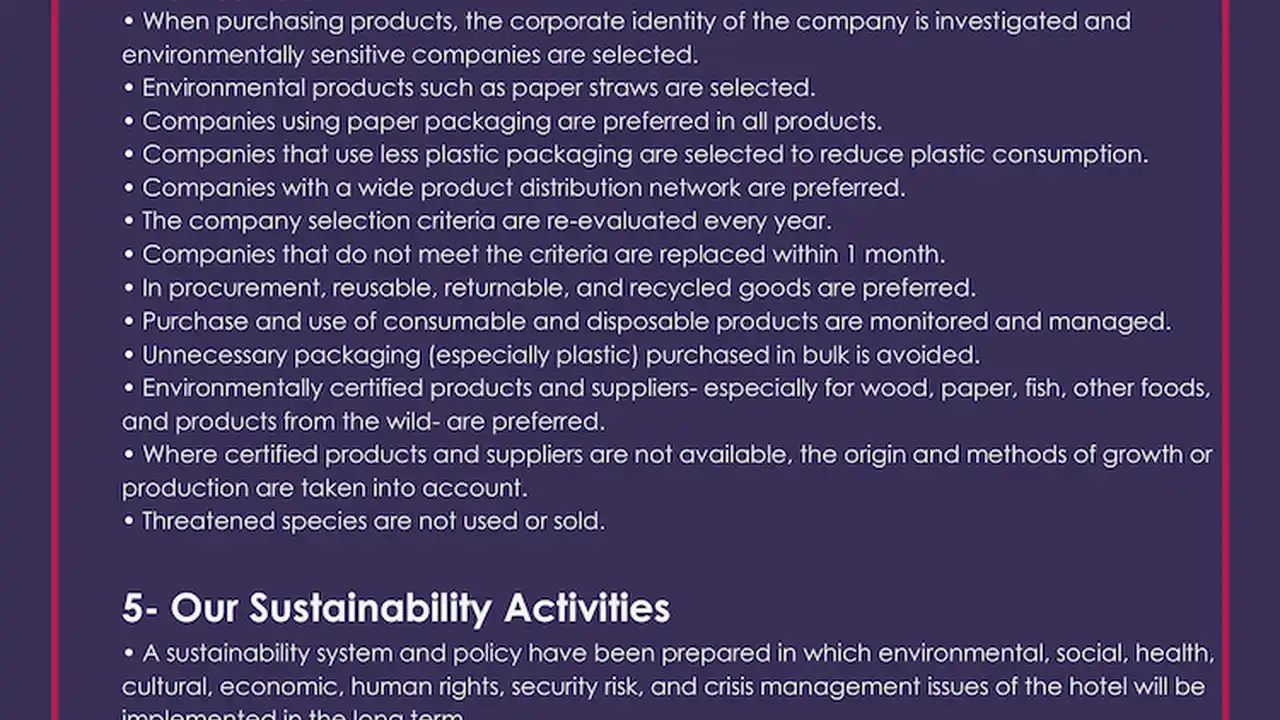Floating Hotels Sustainability Examined
Discover the sustainability of floating hotels as a unique travel option. This guide evaluates environmental impact and conservation efforts. Understand the challenges and opportunities of eco-conscious floating accommodations.

What's the Deal with Floating Hotels Eco-Friendliness? Understanding the Basics
Okay, so you're thinking about a floating hotel. Sounds pretty cool, right? But before you book that Instagram-worthy stay, let's dive into the nitty-gritty of how sustainable these watery wonders actually are. Floating hotels are essentially structures built on water, whether it's a river, lake, or even the ocean. They offer a unique experience, but their impact on the environment can be significant. We need to look at everything from construction to waste management to see if they're truly eco-conscious.
Construction Challenges: Building Sustainable Floating Structures
The construction phase is a big one. Building anything on water comes with its own set of environmental challenges. Traditional construction methods can disrupt marine ecosystems, pollute the water, and damage habitats. Sustainable floating hotels need to prioritize eco-friendly materials and construction techniques. Think sustainably sourced wood, recycled materials, and minimizing the use of concrete (which has a hefty carbon footprint). They also need to be designed to minimize disturbance to the surrounding environment during construction.
Energy Efficiency: Powering Your Floating Paradise Sustainably
How do these hotels get their power? That's a crucial question. Relying solely on fossil fuels is a no-go for a truly sustainable operation. The best floating hotels invest in renewable energy sources like solar panels and wind turbines. They also implement energy-efficient technologies like LED lighting, smart thermostats, and energy-efficient appliances. Look for hotels that are actively working to reduce their energy consumption.
Waste Management: Keeping Our Waters Clean
Waste management is another critical area. Floating hotels need to have robust systems in place to handle wastewater, solid waste, and recycling. Untreated sewage can pollute the water and harm marine life. Sustainable hotels invest in advanced wastewater treatment systems and implement comprehensive recycling programs. They also prioritize reducing waste at the source by using reusable products and minimizing packaging.
Water Conservation: Saving Every Drop on the Water
It might seem ironic, but water conservation is essential, even on a floating hotel! Sustainable hotels implement water-saving measures like low-flow showerheads, dual-flush toilets, and rainwater harvesting systems. They also educate guests about water conservation and encourage them to use water responsibly. Every drop counts!
Impact on Marine Life: Protecting Underwater Ecosystems
The presence of a floating hotel can have a direct impact on marine life. Noise pollution from construction and operation can disrupt marine animal behavior. The hotel's structure can also alter habitats and affect water flow. Sustainable hotels take steps to minimize their impact on marine life by implementing noise reduction measures, avoiding sensitive areas, and supporting marine conservation efforts.
Community Engagement: Supporting Local Economies
Sustainability isn't just about the environment; it's also about supporting local communities. Sustainable floating hotels prioritize hiring local staff, sourcing local products, and supporting local businesses. They also engage with the community to address any concerns and contribute to local development initiatives. Look for hotels that are actively involved in the community.
Certifications and Eco-Labels: Finding the Real Deal
How can you tell if a floating hotel is truly sustainable? Look for certifications and eco-labels from reputable organizations. These certifications verify that the hotel meets certain environmental standards. Some common certifications include LEED (Leadership in Energy and Environmental Design), Green Globe, and EarthCheck. These labels can help you make informed choices.
Floating Hotel Reviews: Real-World Sustainability Examples
Let's look at some real-world examples of floating hotels and their sustainability efforts. Some hotels are doing a great job, while others have room for improvement. Researching reviews and looking for specific details about their sustainability practices can help you find the best options. Check out guest reviews and look for mentions of energy efficiency, waste management, and community engagement.
Product Recommendations: Sustainable Amenities for Your Floating Stay
To enhance your sustainable floating hotel experience, consider bringing your own eco-friendly amenities. Here are a few recommendations:
Solid Shampoo and Conditioner Bars
Product: Ethique Shampoo and Conditioner Bars
Use Case: Reduce plastic waste in the bathroom. These bars are concentrated and last a long time, perfect for travel.
Comparison: Traditional bottled shampoos are mostly water. These bars eliminate the water and the plastic bottle.
Price: $15-$20 per bar
Reef-Safe Sunscreen
Product: Raw Elements Tinted Facial Moisturizer
Use Case: Protect your skin and coral reefs. This sunscreen is mineral-based and doesn't contain harmful chemicals.
Comparison: Chemical sunscreens can damage coral reefs. Mineral sunscreens are a safer alternative.
Price: $20-$25 per tube
Reusable Water Bottle
Product: Hydro Flask
Use Case: Stay hydrated without using plastic bottles. Hydro Flask keeps drinks cold for hours.
Comparison: Plastic water bottles contribute to pollution. Reusable bottles are a sustainable alternative.
Price: $30-$40 per bottle
The Future of Floating Hotels: Innovation and Sustainability
The future of floating hotels looks promising, with ongoing innovation and a growing focus on sustainability. New technologies are being developed to minimize environmental impact and create more eco-friendly designs. As awareness of sustainability grows, more hotels are likely to adopt responsible practices. By supporting these hotels, we can help create a more sustainable future for tourism.
:max_bytes(150000):strip_icc()/277019-baked-pork-chops-with-cream-of-mushroom-soup-DDMFS-beauty-4x3-BG-7505-5762b731cf30447d9cbbbbbf387beafa.jpg)






